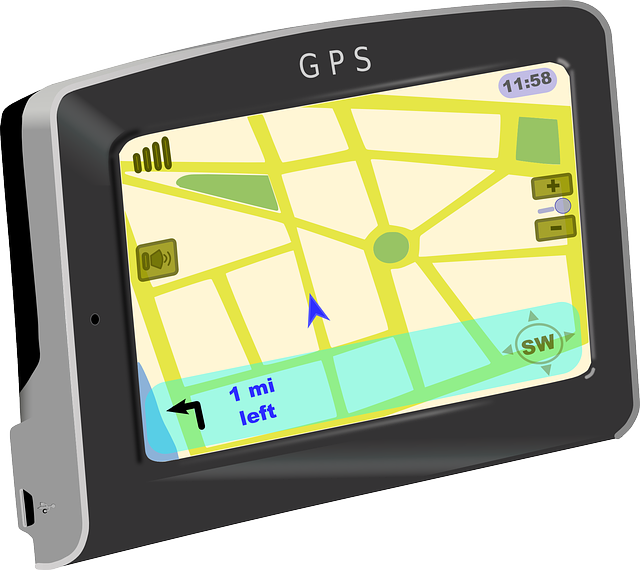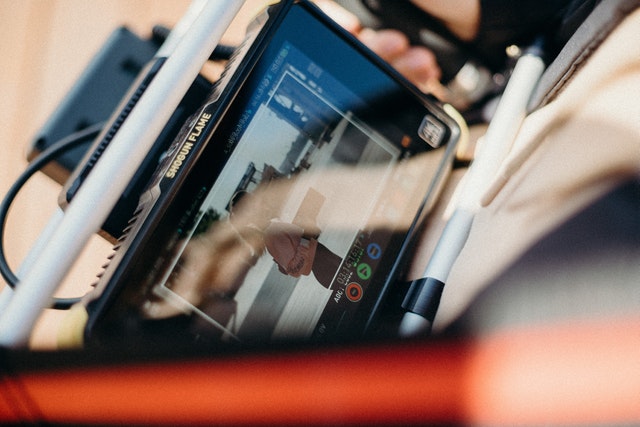This is a contributors’ article from Alex J. Coyne
When most people think of device surveillance, they imagine parked vans with tinted windows that are stocked to the roof with listening equipment. The truth is that surveillance happens a lot closer to home as many a device is watching.
If you own a smartphone, it’s probably recording most of what you do and say. This information is highly valuable to the marketing and tech industries – and once they have it, it gets used to spot trends and create “customized” advertising.
Here’s how to know what information your smartphone is recording right now.
What You Should Know
Tracking: Sometimes It’s Malware

Sometimes phone tracking is outright malware designed to steal your information, identity or passwords: Viruses, worms and keyloggers fall into this category. If you want to put a stop to malware on your devices…
- Download apps from the original manufacturer or website to guarantee that you’re downloading the authentic app instead of a lookalike “clone.”
- Avoid spam links in e-mails and messages at all costs and never click on attachments from someone that you don’t recognize.
- Run a regular virus and malware check on your devices to remove any software that shouldn’t be there.
- If your phone starts acting in ways that it shouldn’t, restore it to the original firmware with a factory reset.
When phone tracking isn’t malware, it’s usually for the collection of data for marketing purposes.
Whether you want companies like Facebook or Google to have this kind of information about your habits and movements is up to you.
App Permissions: Who Is Doing What?
Check your app permissions regularly to see which apps are taking note of what info from your device.
Does it make sense for the Messaging App to have access to your phone’s contacts, messages and SD card? Sure. But if you notice that the messaging app has other permissions that shouldn’t be there and doesn’t make sense for the type of app, it might be recording and sending your information.
T&Cs: Learn to Read Them
Every program or app has terms & conditions when you sign up. Most people skip straight through these and go to the Accept button – but app surveillance and data collection make for very good reasons to stop and read the T&Cs first.
The terms tell you exactly what you’re agreeing to once you click the button and install the app. It should outline which information the app intends to collect and what they intend to do with this data from there.
Some companies will only use the collected information for their own advertising or marketing purposes, while others sell this data to third-party companies. Some companies only collect a few things, while other companies collect uncomfortably specific details about who you are and what you do online and off.
How do you know? Check the app permissions and always read the terms first.
Count the Ways: What Smartphones Want
If you have a smart device, it’s a given that it’s tracking your information on behalf of developers and marketing agencies. It’s true for phones, watches, televisions, fridges and any other devices preceded by the word smart.
Most smart devices these days are pre-installed with social media or instant messaging apps that are automatically set to track your browsing habits – and in most cases, you can’t uninstall them.
Unless you’re living completely off the grid, your devices know a few things about you and your habits.
The Solution to Device Tracking

What can you do about it? It’s impossible to stop your devices collecting information about you, but most privacy agreements allow for you to choose how much information you’re willing to volunteer.
Choose a handful of trusted apps for everyday use and if you install something else outside of this scope, make sure you do very thorough research about what you’re installing on your device.
Most apps use App Permissions to track user information. These settings are automatically set to on unless you specify otherwise by going to App Settings > App Permissions for each of your apps.
Here’s what information your device might be tracking and what it means to the companies doing it.
#1: Location Tracking

Location tracking tells companies that you’re going to walk past the Coffee Place on your way to work at approximately 8AM every morning, and this could mean your phone will now show you ads for the Coffee Place now that it’s armed with this information about your habits.
Location tracking can also pin your general location: Now, it will only show you ads for companies and products available in Australia because it knows that advertising a coffee shop in the Philippines to you would be pointless.
#2: Search Terms and Cookies

Recording search terms and cookies tells a company everything it might want to know about you, your habits and your wants and needs. By knowing what you search for, a company can know everything from your location to your sexual fetishes – and it will adapt to marketing certain things to you accordingly.
In case you were wondering, the use of Incognito Browsing only stops the search terms from being recorded in your browser history: Companies and other parties can still track these search terms in much the same way as anything else.
#3: Recorded Audio

Audio is always all around us. What you aren’t searching for on Google, you’re saying out loud – and some apps are designed to pick up on this information for mostly marketing purposes.
For example, if you and a friend have a conversation about how much you’re feeling like fried chicken (and you use the word “fried chicken” six times in the space of a few seconds), both of you will turn your phones on to a fried chicken ad.
It’s usually not coincidental that the ads being shown to you have something to do with topics you might have discussed a few hours or days before.
#4: Camera Data

The information that search terms and audio doesn’t give companies can usually be filled in with camera data. Recording information from your camera can reveal a lot, including what subjects you’re usually pointing your camera at.
Do your selfies make you a white female in her thirties or a black male in his fifties? Are you taking a lot of food photographs or mostly snapping pictures of cars?
Again, devices take note of this and will adapt what’s being marketed to you right now.
Targeted advertising is one of the prices you pay for being a consumer in modern times. Do you find targeted ads useful – or does it make you want to go off the grid?















